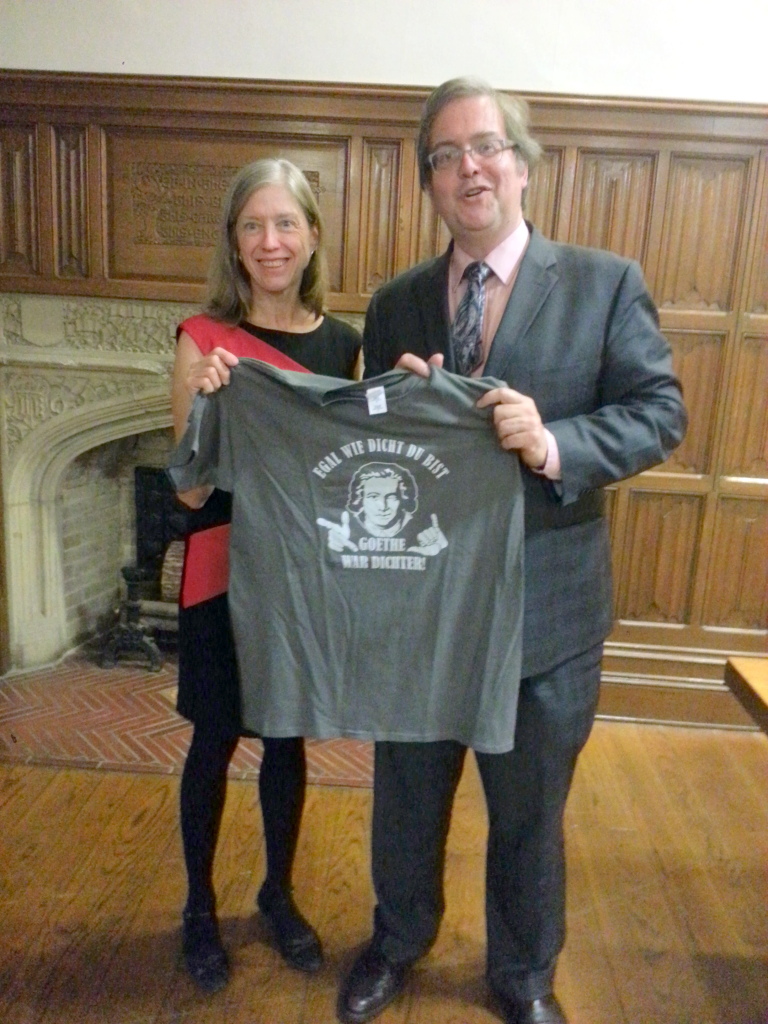The Goethe Society awarded the 2013 best essay prize to Patricia Anne Simpson for her article, "Sacred Maternity and Secular Sons: Hölderlin’s Madonna as Muse." I join my colleague Gail Hart and Peter Höyng in congratulating her for her superb scholarship. Patricia Simpson is Professor of German at Montana State University and her essay appeared in the Camden House anthology, Religion, Reason, and Culture in the Age of Goethe, which she edited along with Elizabeth Krimmer.Patricia Simpson’s essay moves from broadest imaginable intellectual history to a very close reading of an exemplary poem. Her opening paragraph follows the fine German academic tradition of synthesizing as many ideas as possible in one very complex statement, in other words, it shows off just how smart the author is. She situates her argument within eighteenth-century debates over philosophy and theology, the place of the divine in secular modernity, as well the as the importance of pantheism, polytheism, and paganism within poetry. In its broad sweep, the essay reasserts the prominence of religion in our understanding of German intellectual history. She surveys the shifting boundaries between religion and philosophy from Spinoza to Habermas, without becoming so lost in abstraction that she ignores the real life consequences heterodox thinkers faced when they offend the reigning institutions. After a forceful overview, Professor SImpson then winnows her argument down from the accusations of atheism Fichte faced to a tightly focused reading of Hölderlin’s neglected fragmentary ode, "An die Madonna." Simpson demonstrates how Hölderlin attention to maternity, religion and poetic epiphany stood dramatically apart from that of his contemporaries.In choosing Professor Simpson’s work in a year rich with North American Goethezeit scholarship, the committee characterized it as "a beautiful reading of Hölderlin's poetry, explaining the murky dynamics of the Madonna figure and its references to gendered parents with great clarity while disrupting the very basic assumptions about modernity and secularism." In the end we all agreed that it was "thoroughly researched, broad in scope, shedding new light on Hölderlin, with a sophisticated argument, all the while elegantly presented. Ein kleines Meisterwerk."
Daniel PurdyPennsylvania State University
